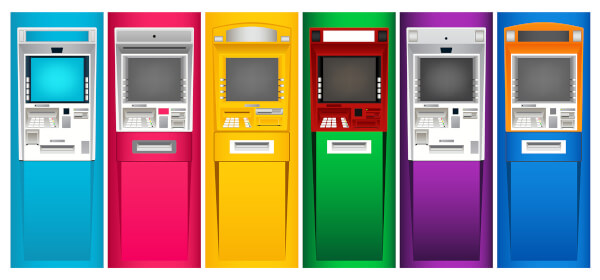Hays travel card review: features, fees and more
Read our Hays travel card review, covering exchange rates, limits, fees and benefits.

Planning a trip to Tunisia soon? Whether you’re eager to explore the ancient ruins of Carthage or relax in the turquoise seas, it’s important to consider how you’ll manage your money while you’re there.
In this guide, we’ll answer what is the best currency to take to Tunisia from the UK. We’ll also cover the commonly accepted payment methods in Tunisia to help you make the right choice for your holiday.
We'll also introduce the Wise card from the money services provider Wise. This clever debit card automatically converts your pounds to the local currency at the mid-market exchange rate in 150+ countries, only adding a tiny, transparent conversion fee* - or it's free if you already have the local currency in your Wise account.
🔎 Learn more about the Wise card
Although it’s generally advisable to arrange your travel money in advance and have it ready to use, this doesn’t apply to Tunisia. Tunisia’s official currency is the Tunisian dinar, but since it’s a closed currency, you’ll only be able to obtain it upon arrival.¹
Even if you find a place that exchanges Tunisian dinars in the UK, know that it’s illegal to bring them in or out of the country. The best option is to bring British pounds with you, although euros and US dollars will be accepted for exchange as well.¹
It’s also important to remember to change back or spend any Tunisian dinars you have before returning home. The authorities have the right to search you, so it’s not worth the risk.¹
You’ll only be able to exchange your pounds for dinars once you arrive in Tunisia, as importing their currency is a criminal offence. Instead, you can exchange your money at a Tunisian bureau de change, bank, or post office.¹
Since the exchange rate is set by the government, there’s no difference between them, so you can simply choose the one that’s most convenient. Be sure to carry your passport with you at all times, as it’s often required for currency exchange.¹
Depending on where you’re staying, you might also be able to obtain dinars at your hotel. If you only have your card with you, you can withdraw cash from a Tunisian ATM, but foreign transaction fees will likely apply.¹
| 📚 Read more: Best ways to spend money while travelling abroad |
|---|
Tunisia offers great value for money, especially compared to prices in the UK, so you can travel comfortably even on a modest budget. How much you end up spending will depend on your preferred travel style, the places you want to explore and the level of comfort you’re looking for.
For example, a three-course meal for two people in a Tunisian restaurant costs £15 on average. Choosing a more basic dining option can reduce the price to around £2.50 per person. You will also find that drinks, especially coffee and soft beverages, are much more affordable.²
As a general guide, accommodation costs in Tunisia range between £15 and £20 per night, per person, depending on the type and category of the place you choose. This will likely make up the largest portion of your budget, so it’s good to consider it early when planning your expenses.³
Cash remains the most popular payment method in Tunisia, especially for small purchases. However, debit cards and credit cards are widely accepted in urban areas and tourist destinations. Mobile wallets like Apple Pay and Google Pay are also becoming more common, along with local options such as eDinar.⁴
In Tunisia, you’ll can generally use major card brands such as Visa, Mastercard and Maestro.⁴ However, some smaller shops and local restaurants may only accept cash, so it’s advisable to check before you order. It’s also worth asking about card acceptance, since Visa is usually more accepted than Maestro.¹
While cards are convenient, cash is the preferred method for many, especially for smaller transactions and tipping.
If you’re unsure whether to rely on cash or cards in Tunisia, cash tends to be the safest choice. You won’t be able to get Tunisian dinars in the UK, but it will often be the only accepted payment method, so try to get some as soon as you arrive.
In urban areas, cards are commonly accepted in hotels, large restaurants and retail stores. To reduce the amount of cash you carry, it’s a good idea to use a credit card for larger purchases. Remember to always pay in the local currency when given the choice, since you’ll usually get a better exchange rate.
Travel and debit cards can be very useful as well. While cashless payment methods are becoming more common across Tunisia, carrying cash remains essential. Many local businesses, especially smaller or family-run shops, often only accept cash.
Also, keep in mind that some cards, like the Wise debit card, can convert your pounds to dinars automatically, with only a small conversion fee*, so you don’t have to worry about exchanging currency in advance.
Sources used:
Sources last checked on date: 19-Aug-2025
*Please see terms of use and product availability for your region or visit Wise fees and pricing for the most up to date pricing and fee information.
This publication is provided for general information purposes and does not constitute legal, tax or other professional advice from Wise Payments Limited or its subsidiaries and its affiliates, and it is not intended as a substitute for obtaining advice from a financial advisor or any other professional.
We make no representations, warranties or guarantees, whether expressed or implied, that the content in the publication is accurate, complete or up to date.

Read our Hays travel card review, covering exchange rates, limits, fees and benefits.

Read our TUI travel card review, covering exchange rates, limits, fees and benefits.

Read our guide on ATMs abroad including networks, locations and tips on how to avoid ATM fees abroad.

If you’re a Barclays customer, have a Barclaycard or hold a Barclays debit card, get familiar with fees and how to use your card abroad in our article.

What is the best currency to take to Cape Verde? Read our guide on currency in Cape Verde, accepted payment methods and more.

Read our roundup of the best UK credit cards for airport lounge access, including cards from Amex, Barclaycard, HSBC and Santander.